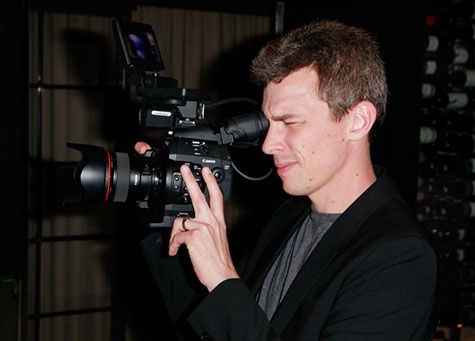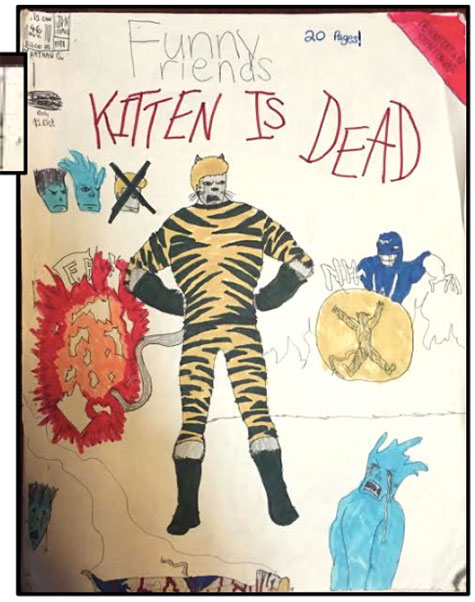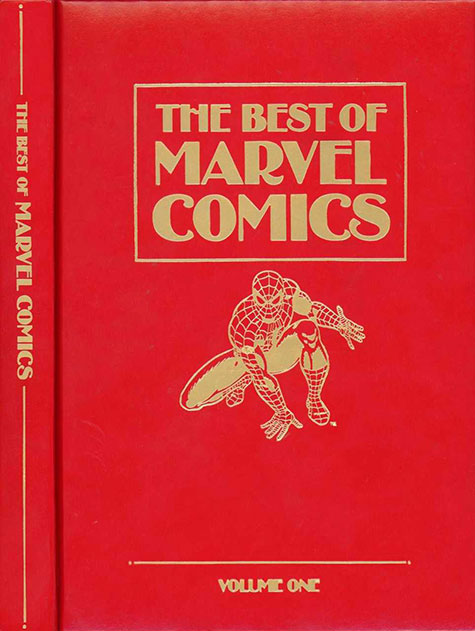
In celebration of the release of my new horror novel, Dead Ringers, I reached out to some of my favorite filmmakers to talk about our mutual love of the genre, formative influences, and what the future holds. After his work as director of the hugely successful film adaptation of The Fault in Our Stars, audiences might have been surprised to learn that Josh Boone had been chosen to write and direct the multi-part adaptation of Stephen King’s epic apocalyptic horror novel The Stand, but a few minutes with Boone would erase any King fan’s doubts and have them eagerly awaiting the first installment. Josh Boone is also on board to write and direct the X-Men spinoff The New Mutants for Fox, and is developing a whole host of book-related projects, both horror and otherwise. Read on…
Christopher Golden: Though your upcoming slate includes a lot of horror and darkness, your breakthrough film was The Fault in Our Stars, a beautiful adaptation of a terrific novel. It seems to me that films about people with terminal illness nearly always spill into mawkish melodrama, but it TFIOS (as my daughter calls it) never does. Was this a concern for you going into the project and, if so, how did you navigate away from it?
Josh Boone: It's nice to hear your daughter is such a big fan of Fault. I, in turn, am a big fan of yours. I'm a longtime collector of signed/limited horror and sci-fi books via specialty publishers like Cemetery Dance (they've published many of yours), Earthling (who did the absolutely gorgeous edition of Strangewood), and Subterranean (your work with the great Amber Benson).
You know, I feel like any story can stray from the right path if it’s not calibrated correctly. John Green's book is incredibly well calibrated. It deftly juggles young love, death, and challenging philosophical questions. You have to take the material seriously and that meant tonal balance was essential. Music has always been a large part of my inner world. I grew up making mix tapes and obsessing over albums and lyrics. I would close my eyes and listen to music and could see the movies I wanted to make. I worked in a record store when I moved to L.A. and spent a lot of time building a massive library of music for the imaginary future in my head where I got to make movies. I cue songs on the page when I write and build a tonal map to keep me on track. If I know the piece of music, I know what the scene needs to be. I know the tone. Mike Mogis and Nate Walcott of Bright Eyes score all my films and they become part of that tonal map as well. Music for me is key and I think that was a large part of the reason Fault worked and stayed on track. Unlike everything else I'm working on, I didn't write Fault — it was brilliantly scripted by Mike Weber and Scott Neustadter — but what I did do was create the tonal space it could exist in to ensure it never drifted too far into that mawkish melodrama we've all become so accustomed to in stories that deal with disease. My absolutely incredible cast were also essential in maintaining the tone. Everyone who worked on the film was committed to John's story. We were all making the same movie. I had a close friend die of cancer and spent a lot of time with him in hospice during his final days. It's why I took John's book seriously. He got it right.
CG: My daughter, Lily, is thirteen and brilliant. She loves Shailene Woodley and the characters she plays. Lily asks “How was she to work with, and do you have any plans to work with her again?” (She’d murder me if I didn’t ask.)
JB: Shailene Woodley was a joy to work with. I think she's the actress of her generation.
CG: In an odd way, I see real connective tissue between TFIOS and The Walking Dead, as well as other post-apocalyptic fiction. They’re all about people living in the aftermath of learning that, in essence, it’s over for them. The same threads seem to connect, for me, to Stephen King’s The Stand, which has been my favorite novel since I first read it back in high school. You’re in pre-production on a multi-part film adaptation, and I know you can’t answer questions about the status of the film or casting, but what do you think makes The Stand such a touchstone for so many readers? Why does it resonate so strongly for you?
JB: I've always said if King gets you when you're young, he's got you for life. I read Firestarter when I was seven. This was the 80s. My dad had a couple King paperbacks on a low shelf in his library. Salem's Lot with the TV mini-series cover and the pictures in the middle — Carrie, The Bachman Books. They captured my imagination. They were outlawed in our house in the early 90s when my folks entered their Born Again period. (Nope, not the Frank Miller Daredevil arc.) I read The Stand under my bed the summer I was twelve or thirteen. I hid it in the boxsprings along with other forbidden tomes. They all ended up getting torched in our fireplace when they were discovered. King was my entryway into the genre. He signed some books for me when I was a kid and had a tremendous impact on my life. It's an honor to call my him a friend. He in turn — via his blurbs — led me to Peter Straub, Clive Barker, even Harlan Ellison. King's introduction to Stalking the Nightmare was why I checked the book out from the library when I was thirteen or fourteen. The Vampire Lestat and Queen of the Damned were major books for me. I loved Ray Bradbury, Robert McCammon (Boy's Life I'll swear by), Dan Simmons, horror anthologies like Dark Forces. I read anything and everything I could get my hands on. I was — and still am — a voracious reader. I discovered new voices through small presses and continue to read those small presses today.
CG: I know you’re certainly not limiting yourself to horror, but your love for the genre definitely shines through.
JB: My company, Mid-World Productions (with my producing partners Knate Lee and Jill Killington) is internally developing feature film and television adaptations of books by Clive Barker, Peter Straub, Caitlin R. Kiernan, and I'm also working on larger studio films based on books by Stephen King and Anne Rice. We have long-term plans for all these projects. Some are immediate concerns, others are further out. Our interests aren't limited just to the horror genre.
CG: Look, there’s no way I’m not going to ask you about The New Mutants, the X-Men spinoff you’re writing and directing for Fox. It was always a cool, quirky spinoff, with an eclectic character lineup. What is it about The New Mutants that appeals to you and what, if anything, can you tell us about the movie version?
JB: The New Mutants is a project I've been dreaming about for a very long time. Knate and I grew up obsessed with all things Marvel. We had a comic book company when we were kids — J & N Comics — and came up with our own superhero teams. The flagship title was called Funny Friends.

We made ourselves superheroes in it. I think there's probably around 75 issues in a box somewhere. We need to digitize them. Comics were everything to us. I was a New Mutants fan growing up in the 80s and really started thinking about it's cinematic potential about a decade ago, long before I ever made my first film. The movie I had in my head then is the movie we are making. I can't discuss any details about it. I'll just say we've been having a blast working on it and Simon Kinberg is one of the most talented guys in the business. I'm grateful to have the opportunity.
CG: What are some of the films or books or comics or TV series that influence you that people might not expect?
JB: I guess I'll just list the things that hit me when I was young and never released their grip.
Books: All things Stephen King, Peter Straub's Shadowland, Robert McCammon's Boy's Life, Bradbury, Philip K. Dick, Issac Asimov, Magazine of Fantasy and Science Fiction.
Comics: Marvel Comics. Spider-Man. X-Men, those three defining Batman graphic novels from the 80s: The Dark Knight Returns, The Killing Joke, and Arkham Asylum, The Punisher mini-series Circle of Blood, Neil Gaiman's Sandman, Vertigo. Really though, the most influential comic book I had was this collected edition Marvel put out in 1987. I read it over and over and over and I still love thumbing through it.

Films: Oliver Stone films. I think his run from Salvador to Nixon is one of the greatest director runs of all time. My dad took me to see JFK when it came out and it changed my life forever. I remember even years before that recording the PayPer View preview of Platoon off the television in my parent's room on a tape recorder and listening to the audio over and over. Born on the Fourth of July is probably my favorite film of all time. I could walk you through it frame by frame. I've seen it more times than any other film. I recorded it off television — I think it was ABC and severely edited — when I was twelve or thirteen and watched it so many times that when I watch it today I still expect the commercial breaks to come at certain moments. I was a huge fan of Jack Nicholson. My dad had a collection of movies he'd recorded off HBO and I remember watching One Flew Over the Cuckoo's Nest, Chinatown, Five Easy Pieces, and Carnal Knowledge. Nicholson is my favorite actor. I'm obsessed with Blade Runner and Kubrick like every other director. I think Paul Thomas Anderson's loose American trilogy — There Will Be Blood, The Master, and Inherent Vice — are the best films of the last decade. He's the great current filmmaker for me. I also love Christopher Nolan. I saw Interstellar six or seven times in the theater. He's the great magician of our time.
TV: Hugely influential shows for me would be The X-Files, The Wonder Years, and Twin Peaks. I was obsessed with the Oliver Stone produced Wild Palms mini-series based on Bruce Wagner's Details comic strip.
CG: Back to horror, specifically….What are your horror favorites right now in various mediums? TV, comics, film, books, video games?
Books: I think Caitlin R. Kiernan is the most original voice in the genre right now. There is no one else like her. She has written hundreds of short stories, acclaimed novels, won every award you can win, and just continues doing the hard work and producing brilliant fiction year after year. King, of course. I read everything he writes, much of it more than once. He sent me an ARC of his new short story collection —The Bazaar of Bad Dreams — and I think its one of his very best.
Films: I loved The Babadook and It Follows. The Witch has the scariest trailer I've ever seen. I have a love/hate relationship with horror films. I love the classics like Rosemary's Baby, The Exorcist, the original Halloween and A Nightmare on Elm Street, but I find that I don't like horror films all that much. Horror fiction is so much more imaginative and character-driven than most horror films. I can only watch a family move into a house that's haunted so many times before I'm bored, you know? I don't particularly like seeing women being tortured. Most horror films aren't interesting to me. It's why we are mining books to hopefully expand what's possible for the genre.
Comics: Wytches, Ed Brubaker's Fatale, Saga
CG: It’s fairly common these days to see successful genre filmmakers stretch out into other mediums, including television (usually as producers), video games, comics, and even novels. Are we going to see you spreading out like that in the future, or do you see yourself focusing exclusively on features?
JB: We're developing a television series based on Walter Mosley's Easy Rawlins novels and a mini-series of Clive Barker's “Imajica.”
CG: Thanks so much for your time, Josh! Can’t wait to see them all!
Christopher Golden is the New York Times #1 bestselling author of Snowblind, Tin Men, and many other novels. His latest, Dead Ringers, is on sale now! Please visit him at @ChristophGolden on Twitter, as on Facebook, and at his website, www.christophergolden.com.

TFIOS was good (and my daughter loved it a [b]ridiculous [/b]amount), but if some of those sensibilities make it to the screen in the hands of someone who seems to have loved the New Mutants even more than I did, I will be a very happy moviegoer. (Or TV show streamer. Or whatever it ends up being.)